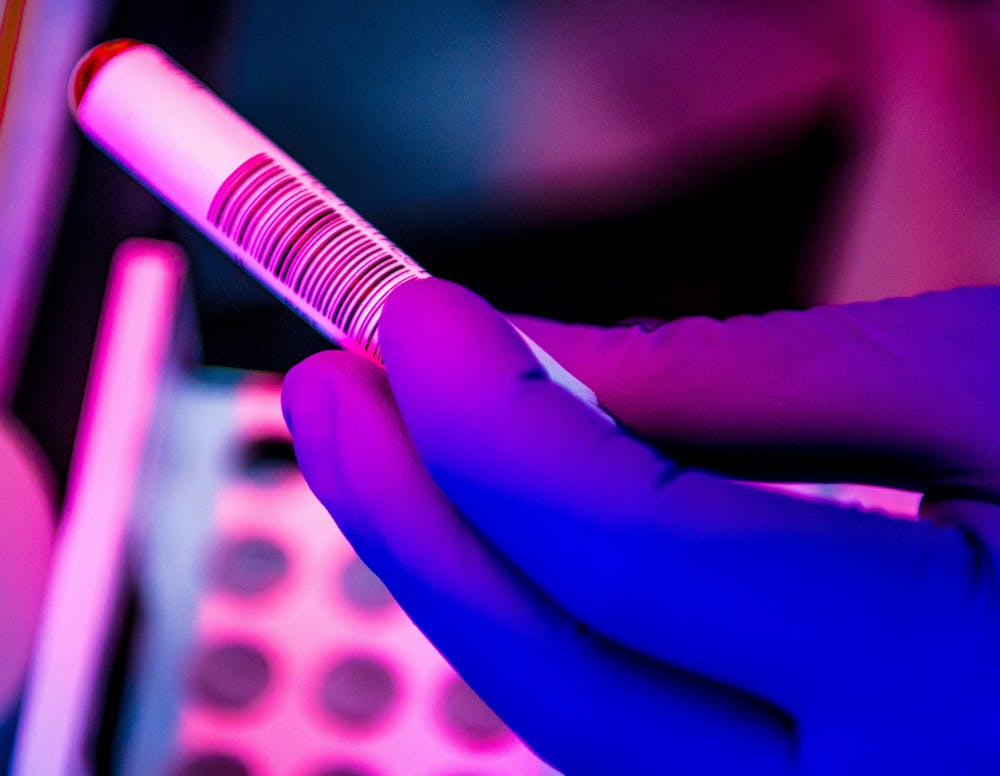Two Hopkins clinical microbiologists — Dr. Karen Carroll and Dr. Heba Mostafa — have recently developed a coronavirus (COVID-19) screening test that may soon allow the Hopkins health system to test as many as 1,000 people per day.
Carroll serves as the director of the Division of Medical Microbiology at Hopkins, while Mostafa directs the molecular virology lab at Hopkins Hospital. Both also hold faculty positions at the School of Medicine in the pathology division.
The first COVID-19 testing kits, manufactured by the Centers for Disease Control and Prevention (CDC), became available on Feb. 4. However, flaws in the CDC kits, the reluctance of the Food and Drug Administration (FDA) to approve new tests and manufacturing problems limited testing.
Limited testing has slowed efforts to track and contain the virus. For instance, South Korea has tested about 4,000 people per million of its population while the United States has just run five tests per million.
In an interview with The News-Letter, Mostafa explained how when it was evident that COVID-19 was spreading rapidly, lab technologists began gathering materials so that they were prepared as soon as the FDA regulations were lifted.
“We tried from the beginning to implement something, but we were delayed because of regulations,” Mostafa explained.
After flaws with the CDC test, the U.S. government opened assay creation on Feb. 29 to labs throughout the country. Mostafa and her colleagues developed a test in three days, before validating it for clinical use.
The quick development of the screening test made Hopkins one of the first with an in-house test in Maryland. Having a testing lab on site in the hospital relieves the burden on the state laboratory.
“We were able to start testing way before any other labs in this geographical area. That helped a lot in the initial diagnosis,” Mostafa said.
The Hopkins screening test uses polymerase chain reaction to rapidly produce billions of copies from a very small sample of DNA obtained from oral or nasal swabs. Then, pathologists can use a computer program to determine whether the genome of the virus is present in the sample.
“The most difficult part was trying to find the genomes of the virus or inactivated virus for our validation,” Mostafa explained.
The lab obtained RNA isolated from COVID-19 from the University of Texas Medical Branch. Once the test was developed and validated, Carroll and Mostafa applied for Emergency Use Authorization from the FDA.
Hopkins used the test for the first time on March 11, and about 85 tests were performed in the first three days. The test is now available at the Hopkins Health System’s five Maryland and Washington hospitals.
Since the initial assay was created, Mostafa’s lab has developed five more. Each assay has a different turnaround time and is used based on how quickly the results need to be returned to doctors.
“We have an assay that has a two-hour turnaround time that we use for the emergency department,” Mostafa explained. “We can’t offer it for everyone because the inventory is limited.”
The lab also has an assay that is fully automated which allows the lab to accommodate more testing. The molecular side of the lab is now operating 24/7. In response, they have increased staffing capacity. Teams from other labs have stepped in to aid the effort.
Within Maryland, about half of all confirmed cases have been diagnosed using the assays at Hopkins, according to Mostafa. As of April 7, there are 4, 371 confirmed cases in Maryland.
In the U.S. and its territories, 95 laboratories have completed verification and are offering screening tests. Since there are very few labs in Maryland that offer screening tests, the molecular virology lab is in the process of becoming a reference lab for other hospitals.
“We are already helping other hospitals in the area,” Mostafa said.
Trisha Parayil contributed reporting for this article.





